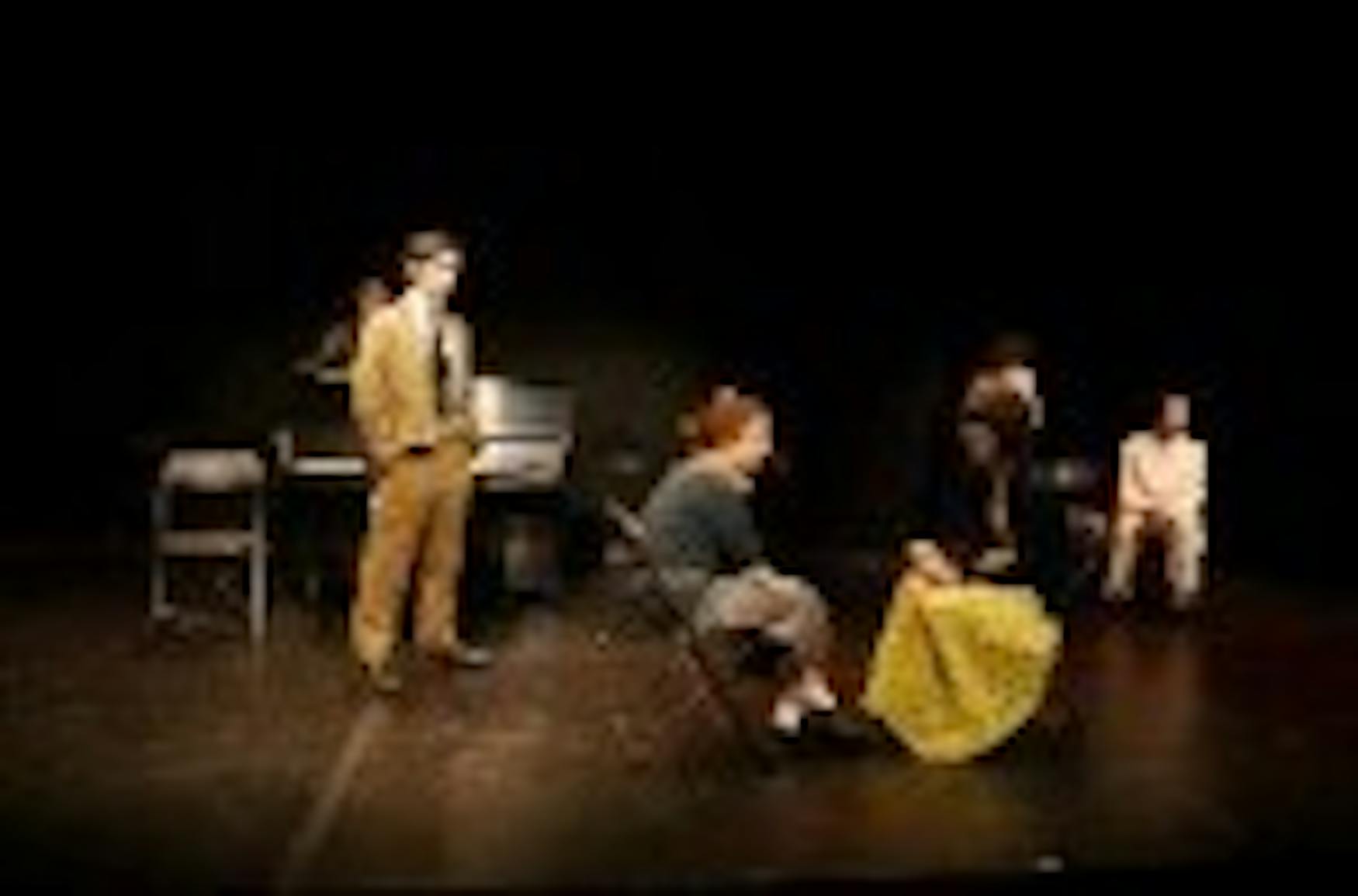Play with music' not so 'Good'
This play set during World War II looked good on paper, but on the stage, the weaknesses outweighed the strengths.
I so badly wanted Good: A Play With Music to be good, if for no other reason than to spare myself the puns. Unfortunately, the play left me with no choice-this Good was bad. The concept was intriguing: How many people can say they've seen a play in which the main character's auditory hallucinations are performed live onstage? But ultimately, the play was incoherent and pretentious, the acting was unconvincing, and the direction failed to compensate for any of these flaws.Good is the story a German novelist and literature professor named John Halder (Jeff Rosenblatt '08) who joins the Nazi party during its rise to power and allows himself to be seduced into full participation in the most heinous Nazi atrocities while still believing himself to be a good man. What, you may ask, does this have to do with Halder's persistent hallucinations of trite cabaret songs and Beethoven's "Ode to Joy"? Well, absolutely nothing, as far as I can tell. That's the problem.
The music fails to comment in any meaningful way on the action of the play, and the conceit simply doesn't work on stage. It's distracting, it's too loud, and it's pretentious. Pianist Jae Kyo Han '10 and violinist Hannelore Sklar '10 are both fine musicians who deserved a better venue for their talents than this one.
Good is full of convoluted dialogue and acting challenges like feigning blindness and mental illness, and unfortunately, the cast was not up to the challenge. Most of the actors were timid, unwilling to commit fully to their characters in either gesture or dialogue. They were obviously holding back, and the responsibility for that lies as much on the director, Eli Matzner '08, as on the actors themselves. Caroline Cappello '11 was a welcome exception- she was thoroughly convincing as Halder's student and lover Anne.
As for Jeff Rosenblatt, who played Halder: This is the third time I've seen him on stage at Brandeis-the first two were in The Goat and Cabaret-and he's played the same character every time. How many identical neurotic, guilt-ridden intellectuals of ambiguous sexuality can one man play, using the exact same gestures and vocal tics? Whether that's Rosenblatt's default mode or an unfortunate result of typecasting, I don't know, but either way, I look forward to a change. He's actually quite a fine actor, and he deserves a chance to stretch his talents.
The technical aspects of this play were much stronger; Matzner's lighting was better than his directing, and the costumes and props were also well done. The blocking was usually effective, although it lacked a great deal of subtlety, and I found all the side conversations between the supporting characters to be distracting.
Good also had profanity problems. By that, I don't mean that there was too much profanity-I have no objection to that. But, for whatever reason, every time one of the actors used the word bloody as an expletive, it was so clumsy and unconvincing that I cringed. Also, let me say that if I never have to hear the phrase Nazi cunt again, I can die happy. That phrase popped up so many times (at least 15) that I thought for a moment I had stumbled into a very experimental staging of The Vagina Monologues.
It is difficult to say whether Good is actually a quality play when it is acted and directed well. My guess is that it is not: The play seems determined not to connect emotionally with the audience, which is a sure recipe for boredom. The point it attempts to make-that highly intellectual people are prone to elaborate self-deception-is neither novel nor particularly profound. The question of how otherwise perfectly normal people could have committed terrible atrocities during the Nazi regime is an urgent one even today, but for a convincing answer, I'd look for a better play than Good.



Please note All comments are eligible for publication in The Justice.